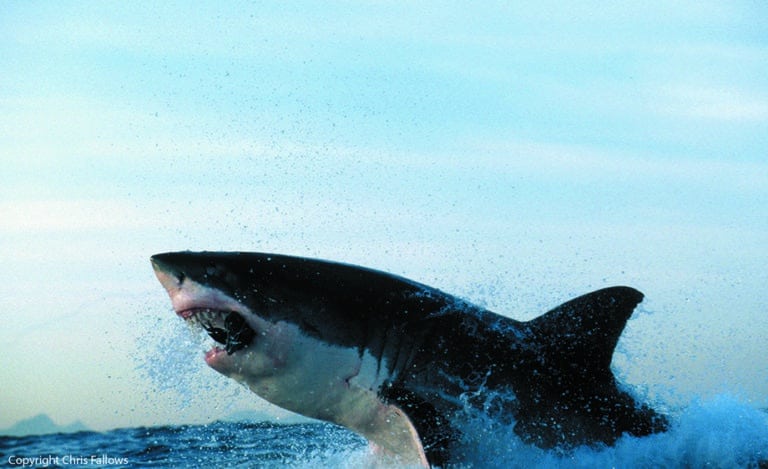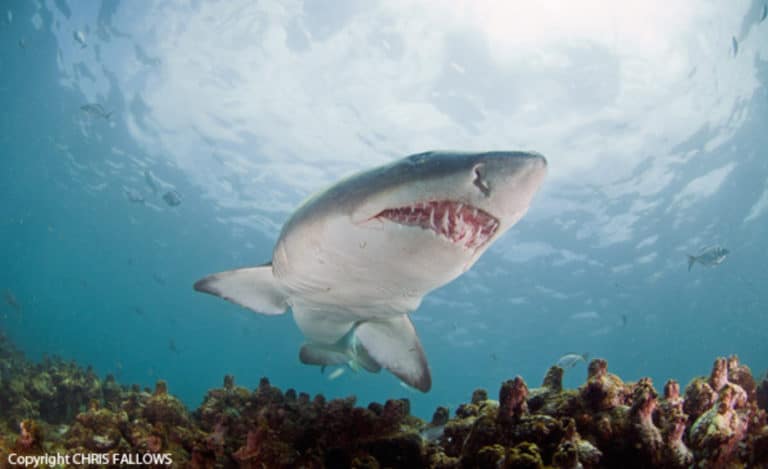By Courtney Cooper
How do Bull Sharks Survive in Fresh Water?
When we think of sharks, we naturally think of the ocean. But did you know that there are seven known shark species that can be found in fresh water? These sharks include the Greenland Shark, Pondicherry, Spear tooth, Ganges and the Bull Shark. Most of these sharks only come and go between freshwater and saltwater. The Bull Shark (also known as the Zambezi Shark) is the only shark able to remain in freshwater for a prolonged period. This blog will explore how Bull sharks are able to survive both fresh water and salt water. We also discuss further shark facts that you might be interested in! Apex Shark Expeditions provides the best great white shark cage diving in Cape Town.
Bull Sharks in Fresh Water: How Do They Live?
Bull sharks are mostly found in the mouth of estuaries; however, they can be found in coastal bays, rivers, lakes and even ponds. These sharks can reach 3.5 meters in length and can weigh between 91 and 227 kilograms. The oldest recorded bull shark is 32 years old. The female sharks are usually larger than the males. Males reach sexual maturity at 15 years and the females at 18 years. The gestation period is 12 months, and the litter size can range from 1 to 13 pups. They are known to mate in salt water and give birth to well-developed live young. The pups are born in shallow salt water and river mouths and estuaries are used as nursery grounds. The rivers and estuaries are used for their young keeping them safer from larger predators in the ocean. They will likely stay there until the age of 5 before venturing off into salt waters once they have developed a higher salinity tolerance.
Bull sharks were not always able to survive for long periods in fresh water. During the last ice age, groups of bull sharks were separated which resulted in a bottleneck effect. The bottleneck effect happens when a population’s size is reduced for at least one generation resulting in a significant genetic variation reduction. Over time, the Bull Shark has successfully adapted to survive in both waters, largely due to their abilities to swim in shallow and deep water and being “Generalists” (meaning they can eat a variety of foods).
Osmoregulation allows the Bull Shark to be diadromous (the ability to move between salt to fresh water without complications). The Bull Shark can regulate their bodies to live in both salt and sea water and they urinate up to 20 times more in fresh water than sea water. They have 4 key organs that help maintain an appropriate salt and water balance. The rectal gland, kidneys, liver, and gills.
The rectal gland’s function is the excretion of excess salts that accumulates because of living in sea water. When the Bull Shark is in freshwater, they decrease the salt-excretory activity and conserve sodium and chlorid. Their kidney’s produce large amounts of diluted urine and this plays a vital role in the active re-absorption of solutes into the blood. The gills are believed to be utilised in the uptake of sodium and chloride from the fresh water. The liver produces urea as and when it’s required in response to the environmental salinity.

As climate changes continues to shift temperatures and weather patterns, we’re more than likely going to see more bull sharks in fresh water due to flooding. The Bull Shak is considered as near threatened due to their habitats that are susceptible to pollution and degradation as well as fishing. They are often fished as bycatch and intentionally fished for their fins, liver oil and skin. After surviving the last ice age and being able to adapt to multiple environments, the Bull Shark is one of the most versatile and resilient sharks of them all.
If you enjoyed this article, you may also be interested in our other article, where we discuss the lifespan of sharks. Make your new year exciting. Book your Shark cage diving in Gansbaai.




